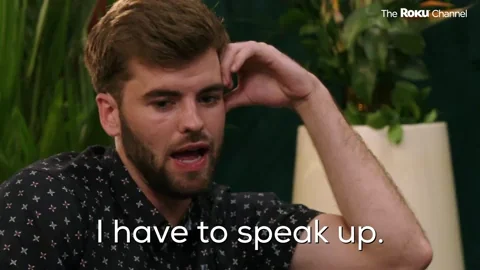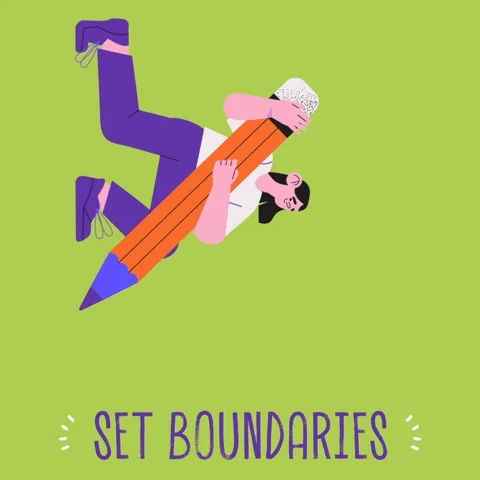You've told your partner that you're not okay with them checking your phone.
But yesterday, they did it again.
Boundaries in your relationships are essential. When they’re crossed, it’s time to speak up.

But how do you respond without blowing things up?
Pause Before Reacting
Feeling hurt or angry? Totally valid.
But before you say something you might regret, take a breath.
Ask yourself:
What boundary was crossed? 💡
For example, maybe your partner made a joke about something personal in front of your friends. Did they know it was a sensitive topic, or were they unaware it would make you uncomfortable? Clarifying this helps guide a respectful conversation.
Was it intentional or a misunderstanding? 💡
For example, maybe your partner shared a photo of you on social media without asking. Did they do it to hurt you, or did they just think you looked cute and wanted to show you off? Understanding their intent can change how you respond.

Be Clear and Calm
Once you’re ready, find a quiet time to talk.
Start with how you feel, not what they did wrong.
Tone matters: A calm conversation is better than a shouting match.
 It's nice to say...
It's nice to say...
“When you read my messages, I felt disrespected. I need my privacy to feel safe in this relationship.”
 Try to avoid saying...
Try to avoid saying...
“You never listen to me! You’re so controlling!”
Quiz
What’s the best way to start a conversation about a boundary that was crossed?
Revisit the Boundary Together
 Photo by Kelly Sikkema on Unsplash
Photo by Kelly Sikkema on UnsplashBoundaries work best when both people understand and respect them.
Use this moment to clarify: 🧩
Why does the boundary exist?
What happens if it’s crossed again?
What do both of you need to feel secure?
For example:
If your partner keeps reading your private messages without asking, you might say:
“I set this boundary because privacy makes me feel safe. If it happens again, I’ll need to take space to protect that feeling. Can we agree on checking in before looking at each other’s phones?”
Boundaries aren't walls. They're bridges to better communication.
Check out the video below for some advice from therapist Thais Gibson on how to communicate your boundary:
Take Action
Now that you know how to respond when a boundary is crossed, it's time to put it into practice! Try one of these steps:
You've got this!
Remember, setting boundaries isn’t selfish — it’s self-respect.

Your feedback matters to us.
This Byte helped me better understand the topic.

